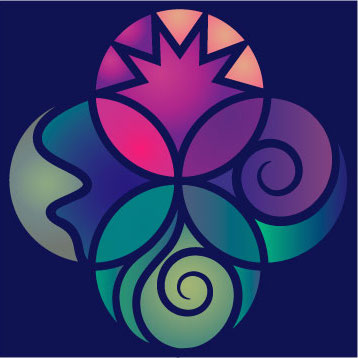Seasons
/The Black Forest in Europe smells strongly, in some spots, of Spruce and Pine. At this time of year the colours of the falling leaves change almost before your eyes. The leaves that were half red a few days ago are now all yellow. It’s quiet enough to hear the leaves fall. Sometimes a falling leaf is loud enough to sound like a footfall and you turn, preparing yourself to meet a stranger.
My companion, who is from here, tells me about the men of the family who had to clear ordnance from the forest after the war. Remembering the heroic people clearing landmines in Eastern Europe and closer to home in Cambodia, I feel sad. For a moment I imagine people fighting for their lives here, hiding in terror, killing each other. A big yellow leaf drops from the top of a tall tree. A rabbit scatters leaves with her strong hind legs.
A friend in Germany tells me that she was 10 years old when the excited children in her class were taken on an excursion — to the Nazi Death Camp at Dachau. At first, the children wandered around the buildings, grateful to be outside the classroom, not really knowing where they were. They were brought to an auditorium and shown a film. Teachers, probably traumatised by similar experiences themselves, chatted and smoked outside while the children sobbed, gasped, made horrible inappropriate jokes and silently, deeply shuddered as they were told that these mountains of emaciated, decaying corpses were the work of their parents and grandparents.
Of course, these children were themselves the children, grandchildren, nieces and nephews of the Gypsies, Jews, Communists, homosexuals and disabled people who were in the camps or somehow managed to avoid them. Some of them were related to the Socialists and Union members who were part of the massive resistance to the rise of the fascists. Those who actually had Nazi party members or supporters in their families were likely to have very little knowledge of what role and responsibilities, if any, their relatives had in the murderous regime. But none of those children, even if they were descendants of Goebbels himself, were responsible for the terrible crimes perpetrated. They were all made to feel so at an impressionable age.
The education system in Germany teaches children about the Holocaust in a way that reminds me of what the Catholic Church does to children: Jesus died for you, you hammered those nails into his hands. Terrified and guilt-ridden children are more obedient, in the short term at least.
Back home in Australia we don’t have to clear the land of mines from the war that happened there but we, too, are at risk of‘collective guilt’ As a child of three generations of intermarriages between non-Aboriginal and Aboriginal people, I know that there have always been, since the invasion, European people who enjoyed the company of and cared for (and were cared for by) Aboriginal people.
In the south-east, where the British first arrived and where most Aboriginal people now live, many Irish and Chinese immigrants found refuge with the Native peoples. In that part of Australia it’s been about 10 generations now since the British arrived. My own clan, perhaps the last to be dispossessed in New South Wales, were removed from their land as recently as the 1920’s. Most white people whose families came to Australia are likely to have Aboriginal relations. They should find out about that. Feeling connected to where you really come from can be a source of great strength for the spirit.
Teaching children history in all its complexity needs to be free of original sin. Most people are born good and will stay that way if given the chance and the opportunity to learn from the experience of those who went before. But if their parents and teachers are paralyzed by guilt, the learning is not easy.
At my home in the Central Australian desert, now it is the season of Mai Wiyaringkupai — a very hot, harsh time of the year, when there is little to eat. I don’t speak much Pitjatjantjara but I know that Mai means food and Wiya ‘no’.
Here in Europe the roses are still blooming and the vines are heavy with sweet grapes after a hot, dry summer. I help my father-in-law gather buckets of apples. They’re crisp and sweet, the first crop of decent apples from a tree he planted twenty years ago. The tree has survived years of hatred and resentment and being dismissed as useless, to bring a bounty of exceptional fruit.
Back home in Australia my father’s garden is every bit as beautiful. It is on the coast, where 80 percent of Australians are clustered, in town and suburbs. Dad has grown mandarins and mulberries, chili and basil. Orchids thrive in the cool shade house, dreaming of the jungle. And yet, at the same time, deep in the stoic heart of the country, the desert is waiting for the thunderstorms that will come in the new year, when seeds will sprout and buds will break open in the rain and the desert will turn into a place of warm abundance. The seasons know when it is time for a new history.



